Science Storytelling: The Art of the Interview
Join us on Wednesday, April 29th 4-6 pm in Cubberley Auditorium for Science Storytelling: The Art of the Interview. Three notable filmmakers will interview three science thought leaders – to demonstrate the art of the interview – from the perspective of both writers and scientists. Watch and listen to experienced writers and scientists talk about research results, brainstorm story arcs and strategies, and reflect on asking and answering questions.
Moderator: Davis Masten, Co-chair of the Presidents’ Circle, the National Academies, and activist in the Science and Entertainment Exchange
Filmmaker Interviewers include:
*Scott Z. Burns, mediaX Distinguished Visiting Scholar and Oscar-award-winning writer and producer
*Allan Loeb, producer and writer
*Louie Psihoyos, writer and director
Science thought leaders:
*Jeremy Bailenson, Founding director of Stanford University’s Virtual Human Interaction Lab and Associate Professor in the Department of Communication at Stanford University. His book, Infinite Reality, has been widely acclaimed and has now been translated into Chinese. His VHIL lab receives many visitors, recently including President Obama and also including Mark Zuckerberg shortly before his purchase of Oculus. Main research finding: People’s perceptions of themselves and others are changed through mediated interaction, including virtual reality. His lab studies how perceptions are influenced by immersive experiences. He has a strong research effort focused on sustainable behaviors, oceans, empathy, education, and synchrony. Some people believe gesture-based communications with remote colleagues will be widely used as business technology in the future. The dark side includes the ability to hack a person’s image, voice, content – and change it without the other party knowing.
*Carl Hewitt, MIT Emeritus EE/CS and visiting scholar at Stanford. Carl follows CIA, defense, and consumer privacy and security issues and is a thought leader in personalization and security. His current concern focuses on the expiration of legislation authorizing mass surveillance; his new models provide ways to think about DataCenterism and CyberLocalism.
*Nathan Wolfe is a virologist with extensive experience in sub-Saharan Africa and Southeast Asia.He founded and directs the Global Viral Forecasting Initiative (GVFI), a pandemic early warning system which monitors the spillover of novel infectious agents from animals into humans. GVFI coordinates activities of over 100 scientists and staff from countries around the world. He currently has active research and public health projects in Cameroon, China, Central African Republic, DR Congo, PR Congo, Gabon, Equatorial Guinea, Lao, Madagascar, Malaysia and Sao Tome.
Never Miss An Event; Join Our Email Community
Presenters

Scott Z. Burns is an Award-winning Producer/Screenwriter & mediaX Distinguished Visiting Scholar. His credits include: writer and producer of An Inconvenient Truth, the Academy Award-winning documentary, for which he received the Humanitas Prize and the Stanley Kramer Award from the Producers Guild of America. The original screenplay for Side Effects, a psychological thriller starring Jude Law, Rooney Mara, Catherine Zeta Jones, and Channing Tatum-which received the coveted Golden Tomato for 2013- directed by Steven Soderbergh (produced by Burns, Greg Jacobs and Lorenzo Di Bonaventura), and the original screenplay for Contagion, directed by Steven Soderbergh, starring Matt Damon, Kate Winslet, Marion Cotillard, and Jude Law.
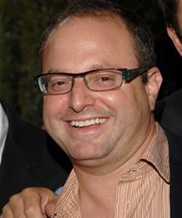
Allan Loeb is an American screenwriter and film and television producer. He wrote the 2007 film Things We Lost in the Fire and created the 2008 television series New Amsterdam. He wrote the film drama 21, which also was released in 2008. He wrote and produced The Switch which came out in August 2010. He wrote Wall Street: Money Never Sleeps, released in September 2010, The Dilemma (January 2011), and Just Go with It (February 2011). He performed a rewrite for the musical Rock of Ages, starring Tom Cruise, released June 2012, and then the mixed martial arts comedy Here Comes the Boom, starring Kevin James; Loeb co-wrote the script for with James, and the film which hit theaters in October 2012. His next feature to be released is the action comedy So Undercover starring Miley Cyrus, which is set to come out direct to DVD in February 2013, which he co-wrote and produced with Steven Pearl.
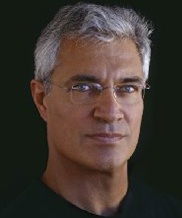
Louie Psihoyos is the Executive Director of the Oceanic Preservation Society (OPS), and is widely regarded as one of the world's most prominent still photographers. He has circled the globe dozens of times for National Geographic and has shot hundreds of covers for other magazines including Fortune Magazine, Smithsonian, Discover, GEO, Time, Newsweek, The New York Times Magazine, New York Magazine, Sports Illustrated and Rock and Ice. His work has also been seen on the Discovery Channel, National Geographic Television and the History Channel. His imagination, wit and iconic imagery have helped illustrate a wide array of complex subjects and is carried over to his filmmaking.
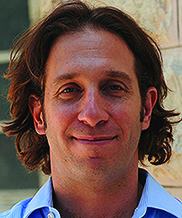
Jeremy Bailenson is founding director of Stanford University’s Virtual Human Interaction Lab, an associate professor in the Department of Communication at Stanford, and a Senior Fellow at the Woods Institute for the Environment. He designs and studies virtual reality systems that allow physically remote individuals to meet in virtual space, and explores the manner in which these systems change the nature of verbal and nonverbal interaction. In particular, he explores how virtual reality can change the way people think about education, environmental behavior, and health.
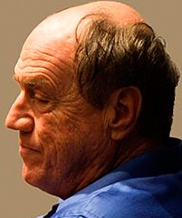
Carl Hewitt is known for his design of Planner. This was the first programming language based on procedural plans invoked using pattern-directed invocation from assertions and goals. Planner was influential in the development of both logic programming and object-oriented programming. He is also known for his work on the Actor model of concurrent computation, which influenced the development of the Scheme programming language and the π calculus, and served as an inspiration for several other programming languages. His publications also include contributions in the areas of open information systems, organizational and multi-agent systems, logic programming, concurrent programming languages, direct inference and client cloud computing.
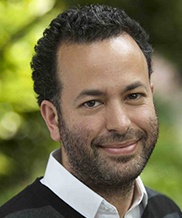
Nathan Wolfe is Chief Executive Officer of Global Viral Forecasting. He received his bachelor's degree from Stanford in 1993 and his doctorate in Immunology & Infectious Diseases from Harvard in 1998. Dr. Wolfe has published over 50 articles and chapters. Among his major findings include the discovery of the first evidence of natural transmission of retroviruses from nonhuman primates to humans. His work has been published in or covered by Nature, Science, The Lancet, PNAS, JAMA, The New York Times, The Economist, Wired, Discover, Scientific American, NPR,Popular Science, Seed, and Forbes. He has received research support totaling over $20m in grants and contracts from the Google.org, The Skoll Foundation, NIH, the National Science Foundation, the Bill & Melinda Gates Foundation, the National Geographic Society, Merck Research Laboratories and various branches of the US Department of Defense, including: the Global Emerging Infections Surveillance & Response System (GEIS), HIV/AIDS Prevention Program (DHAPP), and the US Military HIV Research Program (USMHRP).